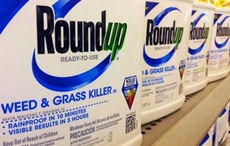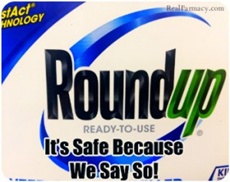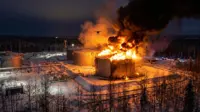Lawsuit alleges Monsanto staff ghostwrote safety reports
15 Mar 2017
Employees of Monsanto Co ghostwrote supposedly independent scientific reports that US regulators relied on to determine that a chemical in its Roundup weed killer does not cause cancer, farmers and others suing the company claimed in court filings.
 The documents, which were made public on Tuesday, are part of a mass litigation in federal court in San Francisco claiming Monsanto failed to warn that exposure to Roundup could cause non-Hodgkin's lymphoma, a type of cancer.
The documents, which were made public on Tuesday, are part of a mass litigation in federal court in San Francisco claiming Monsanto failed to warn that exposure to Roundup could cause non-Hodgkin's lymphoma, a type of cancer.
The company has denied that the product causes cancer.
Plaintiffs claim that Monsanto's toxicology manager ghostwrote parts of a scientific report in 2013 that was published under the names of several academic scientists, and his boss ghostwrote parts of another in 2000.
Both reports were used by the US Environment Protection Agency (EPA) to determine that glyphosate, a chemical in Roundup, was safe, they said.
They cited an email from a Monsanto executive proposing to ghostwrite parts of the 2013 report, saying, "We would be keeping the cost down by us doing the writing" while researchers "would just edit & sign their names so to speak."
 In an email, a Monsanto spokeswoman denied that Monsanto scientists ghostwrote the 2000 report but did not directly address the 2013 report. She said the ghostwriting allegations were based on "cherry-picking" one email out of 10 million pages of documents.
In an email, a Monsanto spokeswoman denied that Monsanto scientists ghostwrote the 2000 report but did not directly address the 2013 report. She said the ghostwriting allegations were based on "cherry-picking" one email out of 10 million pages of documents.
Another filing focused on Jess Rowland, a former deputy director at the EPA who chaired a committee on cancer risk and who plaintiffs say worked with Monsanto to suppress studies of glyphosate.
The filing includes an email from a Monsanto employee recounting how Rowland told him he "should get a medal" if he could "kill" a study of glyphosate at the Department of Health and Human Services, a separate federal agency.
Rowland, who is retired, is not a defendant in the litigation. He could not immediately be located by Reuters for comment. The EPA had no immediate comment.
The federal mass litigation includes about 60 lawsuits, according to Aimee Wagstaff, an attorney for the plaintiffs. Several hundred more lawsuits are pending in state courts, she said.
A California state court judge on Friday in a separate lawsuit ruled that California could classify glyphosate as a cancer risk. The case is In re Roundup Products Liability Litigation, U.S. District Court, Northern District of California.




















